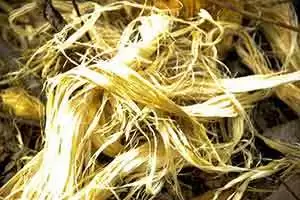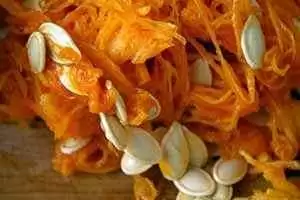
Celiac.com 02/21/2020 - It seems fiber is important, especially for those suffering from celiac disease. Who knew? A study published in the March 2018 issue of Clinical Gastroenterology determined that increased fiber intake helped with ongoing celiac symptoms among sero-negative patients, and those with healed small intestine mucosa.
The study looked at 47 confirmed celiac disease patients, of which 22 were not suffering from ongoing celiac symptoms, while 25 had ongoing symptoms. Both groups had healed intestinal mucosa and negative blood tests for celiac disease. They also tested a whole bunch of other technical biomarkers such as "CD3 + and γδ + intraepithelial lymphocytes (IELs), CD25 + and FOXP3 + regulatory T cells, and CD117 + mast cells, and the expression of tight junction proteins claudin-3 and occludin, heat shock protein 60, interleukin 15, and Toll-like receptor 2 and 4 were evaluated in duodenal biopsies." I have no idea what these are or why they are important, but they looked at them. My guess is that they are related to the autoimmune and/or inflammatory processes.
Celiac.com Sponsor (A12):
The asymptomatic patients ate more fiber and had a larger number of CD3 intraephithelial lymphocytes (IELs). According to the study, "There may be a correlation between the number of CD3 IELs and intestinal inflammation."
The big take away for me on this is that we should eat more fiber. The gluten-free diet is notoriously low in fiber. Some good sources of fiber are beans, greens, coconut, corn, broccoli, sweet potatoes, and brown rice.
Beans can cause unfortunate gas and bloating which can be mistaken for celiac symptoms. Soaking beans overnight before cooking and using the Beano enzymes are good ways to counteract this. I find I can eat beans one day, but struggle if I try to eat them two days in a row. Leafy greens, again two days in a row throws my body into a fit. Maybe alternating days of beans and greens might help!
Also, there is no shame in a gluten-free fiber supplement. I find psyllium husk fiber supplements to be exceptionally hard on my system. I use flax seeds when I need to. Here is a great article on how to choose a good fiber supplement for yourself.
Anyway, if you are experiencing ongoing celiac symptoms, try a fiber supplement for a few weeks. Many people will tell you to eliminate diary, all grains, or a low FODMAP diet. This might be simpler and easier to implement than any of those and might provide relief. I would say this is worth a try!











Recommended Comments
Create an account or sign in to comment
You need to be a member in order to leave a comment
Create an account
Sign up for a new account in our community. It's easy!
Register a new accountSign in
Already have an account? Sign in here.
Sign In Now